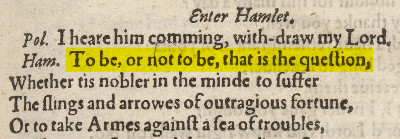Ayeri uses reduplication for a number of things, because reduplication is a nice feature. Says the Grammar on this topic (§ 3.2.3):
It is used for hortatives, to indicate that something is done again, and it is used to form diminutives of nouns.
There are two patterns listed for verbs, one with complete reduplication of the imperative verb form for hortative statements, and one with partial reduplication as a way to express that an action takes place again, i.e. some kind of frequentative – like this:
| nara- ‘speak’ | naru-naru ‘let’s speak’ | na-naru ‘let’s speak again’ |
| narayeng ‘she speaks’ | na-narayeng ‘she speaks again’ |
Nouns use complete reduplication to derive diminutive forms, for example veney-veney ‘doggie’ < veney ‘dog’. Sometimes, this is also lexicalized, though:
| agu ‘chicken’ | agu-agu ‘chick’ |
| gan ‘child’ | gan-gan ‘grandchild’ |
| kusang ‘double’ | kusang-kusang ‘model’ |
| veh- ‘build, construct’ | veha-veha ‘tinkering’ |
As you can see from the above examples, the outcome of lexicalized reduplication of nouns is not always what one would expect from a strict interpretation: sometimes the result simply adds a more endearing shade of meaning to the original word than strictly signifying a smaller version of the thing.
Last year, however, I also began applying (lexicalized) reduplication to adjectives as a means of derivation:
| apan ‘wide’ | apan-apan ‘extensive’ |
| ikan ‘complete, whole’ | ikan-ikan ‘entire; completely, totally’ |
| pisu ‘tired, exhausted’ | pisu-pisu ‘tiresome, exhausting’ |
This is all fair enough, but when I was translating something very recently, I even found myself using this reduplication of adjectives productively:
and because that-A.INAN NEG both mechanic-P and passenger-PL-P company-LOC 1SG.GEN, AT prepare-1SG.T manage-PTCP – EMPH~alone – repair-P.INAN difficult=very.[/gloss]
‘And because there were neither a mechanic nor passengers in my company, I prepared to manage – all alone – a very difficult repair.’ (cf. De Saint-Exupéry 13)
What I did here is reduplicating kebay ‘alone’ to kebay-kebay ‘all alone’. The question is then, whether I should regularize this reduplication process, too, as a means to emphasize the large extent of the quality described by the adjective. This is, essentially, an augmentative function.
Now, in languages like German or French, adjectives are noun-like in that they agree with their noun heads in categories of the noun – in German and French this would be number and case. In Ayeri, on the other hand, adjectives aren’t inflected for either the noun’s or the verb’s categories, but they are still nouny in that uninflected nouns may serve as adjectives easily, for example:
| anang ‘charm’ | anang ‘charming’ |
| dipakan ‘pity’ | dipakan ‘pathetic, wretched, pitiable’ |
| gino ‘drink’ | gino ‘drunk’ |
| ijan ‘silver; coin’ | ijan ‘rich’ |
| karon ‘water; sea’ | karon ‘liquid’ |
| mihan ‘wood’ | mihan ‘wooden’ |
This is also relevant regarding case-inflected noun compounds, for example kihas ‘map’ in this passage:
say-3PL.M.A AT be.supposed.to be.interested.in-IRR-1SG.T=rather science-P map[/gloss]
‘[T]hey told me, I should rather be interested in geography[.]’ (cf. De Saint-Exupéry 12)
The question then is, if adjectives are essentially nouny in Ayeri, should there be a reduplicating derivative method that basically does the opposite of what it does for nouns? It doesn’t necessarily strike me as counter-intuitive given the range of things that reduplication is already used for in Ayeri, but systematically it seems confusing. Also, consider that although nouns are rather consistently case-marked in Ayeri, they appear zero-marked (that is, superficially unmarked) when they carry the topic morpheme. Thus, a topic-marked diminutive noun that also exists as a zero-derived adjective could at least potentially clash with a reduplicated adjective at least in its identical surface form.
- De Saint-Exupéry, Antoine. Le Petit Prince. Ed. Rudolf Strauch. 11th ed. Paderborn: Schöningh, 1991. 12–13. Print.
- I replaced *bata-bata ‘grandchild’ with the regularly formed gan-gan in the dictionary already a while ago but didn’t change it here. I did that now. I think my coining *bata-bata was due to mixing up bata ‘short’ with gan ‘child’ for some reason.
